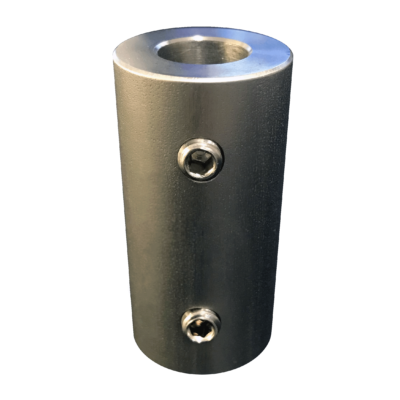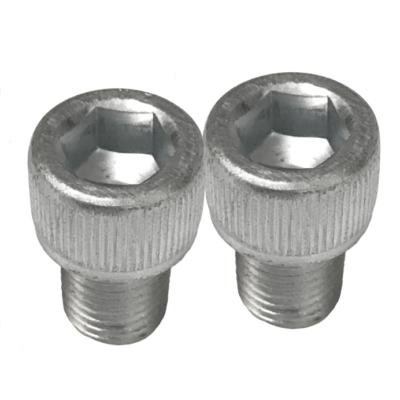Connectors
Showing 13–14 of 14 results
Laboratory Connectors for Frames and Chemistry Lattice Assemblies
Lee Engineering specializes in quality, corrosion resistant, and user-friendly laboratory connectors and support bases for your laboratory lattice frame assembly. We’re founded on the principle of accessible scientific learning whether for industry or education. Our lattice connectors simplify apparatus construction so you can focus your energy on your food science, biology, or chemistry experiment findings.
Lee Engineering stocks numerous lattice connectors that unite laboratory rods as joints, forming the load-bearing components of your industry or school laboratory frame assembly. Lattice connectors allow you to quickly and simply customize your frame assembly to your experiment’s requirements. Impeccably machined hardware ensures stability for your food science, biology, or science classroom laboratory.
Our connectors’ unique open-throat designs allow for simple shifting and removal, which is especially helpful for food science and industrial lab setups. The simplicity means your time can be saved for more important tasks like proving, disproving, revising your scientific hypotheses. Afterall, Lee Engineering was founded by a renowned electrical and mechanical engineer, so we have a legacy of dedication to the scientific method.
The open throat design of our connectors allows easy shifting and removal, so your time can be saved for important tasks like experiments or scientific tests. Adjustment screws simplify equipment setup and prevent misalignment, which could be dangerous during chemistry experiments. The rounded, smooth surface on the stainless steel connectors is impermeable for simple and thorough cleaning whether you’re testing chemicals, food particles, or biological organisms. Schools and universities find the easy cleanup especially helpful as lab time can often be limited and clean-up needs to happen quickly.
Connectors are available with hex adjustment screws or Lee Engineering’s exclusive quick-action tee handles which lock lattice rods in place, providing lattice stabilizing and preventing misalignment.
Open Type Laboratory Connectors
The open throat ball and S-type connectors preferred by industry laboratories allow easy shifting and removal – reducing setup time for food science, biology, and chemistry experiments. Lift lattice rods safely from the connector without needing to force the equipment. The smooth, rounded surface makes the lattice connector compact and easy to clean in laboratories.
Closed Type Laboratory Connectors
Closed connectors provide connection of substantial rods and rod-mounted equipment. The tapered inlet ensures smooth, accurate rod alignment. Lee Engineering also offers an array of handle assembly hardware you can purchase with closed connectors to convert standard connectors into a quick action connector. This lab equipment affords versatility for industrial biology, chemistry, and food science labs.
Clamps (Couplers) for Laboratory Connectors
You don’t need to disassemble a whole apparatus just to extend lattice rods. School and industry laboratories often use Lee Engineering couplers (laboratory clamps) to seamlessly extend lattice rods for configuration changes. Choose light, versatile aluminum for school and food science labs or impervious stainless steel for chemical labs.
Regardless of the material you choose, tapered inlets in all of our couplers ensure smooth and accurate lattice rod alignment for your laboratory. Lee Engineering offers a variety of connectors to secure lattice rods and rod-mounted equipment at various angles, weights, and configurations for your application – allowing you to customize your setup as needed whether you’re an industrial, organizational, or educational laboratory.
What Material is Best for Your Laboratory Lattice Coupler Needs?
Lee Engineering proudly serves a variety of industries including food science, biology, education, and chemical engineering. Because of our broad client list, we understand the value of choice for choosing lattice and coupler materials. However, it can be hard to know what material is right for your laboratory, especially if you’re new to science lab assembly. This quick discussion should help you choose the coupler material for your experiment needs.
Stainless Steel Laboratory Couplers
Though stainless steel costs more, the investment is worthwhile for strength, durability, and resistance to corrosion. Stainless steel also has low reactivity to food chemicals, so it doesn’t affect color and flavor. Therefore, it is ideal for industrial food service and chemical industries that may expose the couplers to harsh acidic liquids.
The downside of aluminum is its corrosion rate and limited strength when compared to stainless steel. However, Lee Engineering’s aluminum couplers are alloy, so they are fused with silicon, copper, and zinc to fend off some corrosion. Nonetheless, alloy is still more corrosive than stainless steel, so our aluminum couplers are ideal for school and university labs because such places usually test water-soluble chemicals in science experiments. Aluminum is lightweight for easy assembly regardless of the strength of the assembler, another reason why it is preferred by middle school and high school laboratories.
Regardless of the lab material you choose, Lee Engineering is your best choice for high-quality lab equipment components. Purchase your own apparatus components for your laboratory needs or visit our science kits page for complete lattice assemblies ideal for schools.
How to Build a Lab Bench
At Lee Engineering, we want your lab to be safe, durable, and efficient, so we’ve listed some tips on how to make your own lab bench below. Of course, you could contract someone to do the work for you, but if you’re a budget-conscious, hands-on person who takes pride in your creations, this informative section might be the perfect resource for you.
Contact Us
Whether you need a custom or bulk lattice quote, inquiries about a custom product, or any other question, please reach out to us. The team at Lee Engineering is here to help you find the right product to complete your project or compliment your product. We can't wait to hear from you.


